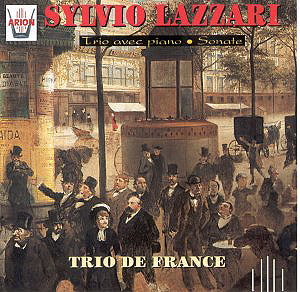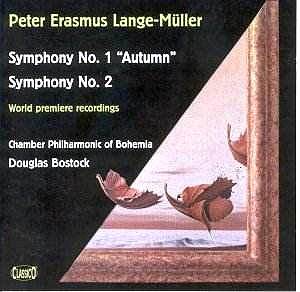 Composer: Sylvio Lazzari
Composer: Sylvio Lazzari
Works: Piano Trio, Violin Sonata
Performers: Jacques Duhem (violin), Madeleine Virlogeux (piano), Hervé Derrien (cello)
Recording: Trio de France, recorded May 1996, Studio 106, Radio France, Paris
Label: ARION ARN 68360
Sylvio Lazzari, an Austro-Italian composer whose career unfolded predominantly in Paris, remains a somewhat esoteric figure in the pantheon of early 20th-century French music. His works, deeply infused with the spirit of Brittany, reflect a duality of influence that straddles the romantic and the modern. This recording, featuring his Piano Trio and Violin Sonata, offers an illuminating glimpse into Lazzari’s evolving style during a time when the musical landscape was undergoing significant transformation. While overshadowed by his contemporaries, Lazzari’s compositions merit closer examination for their lyrical beauty and structural ambition.
The Piano Trio, composed in 1901, is characterized by its lush, Schumann-like lyricism intertwined with Beethovenian turbulence and Mendelssohnian charm. The performers execute the work with a palpable sense of commitment, particularly in the first movement, where themes surge with a romantic fervor reminiscent of Brahms. However, while the thematic material is engaging, it occasionally lacks the transcendent quality that might elevate it to the realm of the sublime. The interpretation by Duhem, Virlogeux, and Derrien captures the undulating cantabile character of the piece beautifully, yet one might argue that the intensity of expression could be more fervent in places, especially during the tempestuous passages. The recording quality enhances the intricate interplays between instruments, allowing the listener to appreciate the subtleties of Lazzari’s orchestration and counterpoint.
Transitioning to the Violin Sonata, composed seven years later, the ensemble maintains a high level of artistry. This sonata bears a remarkable affinity to Beethoven’s Spring Sonata, yet it emerges as a more introspective work. The first movement unfolds with expansive lyrical lines, and the performers navigate its length—over seventeen minutes—with commendable sophistication. Particularly noteworthy is the lento, which stands out as a striking gesture, fresh in its melodic invention and unencumbered by the conventions of its time. The final movement’s fiery energy suggests the potential for a complete concerto, a testament to Lazzari’s ambition as a composer. Here, the interplay between violin and piano is deftly managed, with Duhem’s tonal richness and Virlogeux’s sensitive accompaniment intertwining seamlessly.
The technical aspects of this recording are commendable, with a well-balanced sound that allows each instrument to shine without overshadowing the others. The engineering captures the warmth of the studio setting, providing a rich auditory experience that enhances the emotional depth of the performances. The notes by Joël-Marie Fauquet add valuable context, illuminating Lazzari’s inspirations and the historical backdrop against which these works were created.
While the absence of a commercial recording of Lazzari’s opera La Lépreuse still lingers as a missed opportunity, this release serves as a significant contribution to the understanding of Lazzari’s oeuvre. The quality of interpretation and recording solidifies the relevance of these works within the broader narrative of French music. The Trio de France’s dedication to uncovering and presenting Lazzari’s music is both commendable and necessary, allowing listeners to appreciate a composer who, while perhaps not as widely known as his contemporaries, offers a compelling and richly textured musical language that deserves greater recognition.
